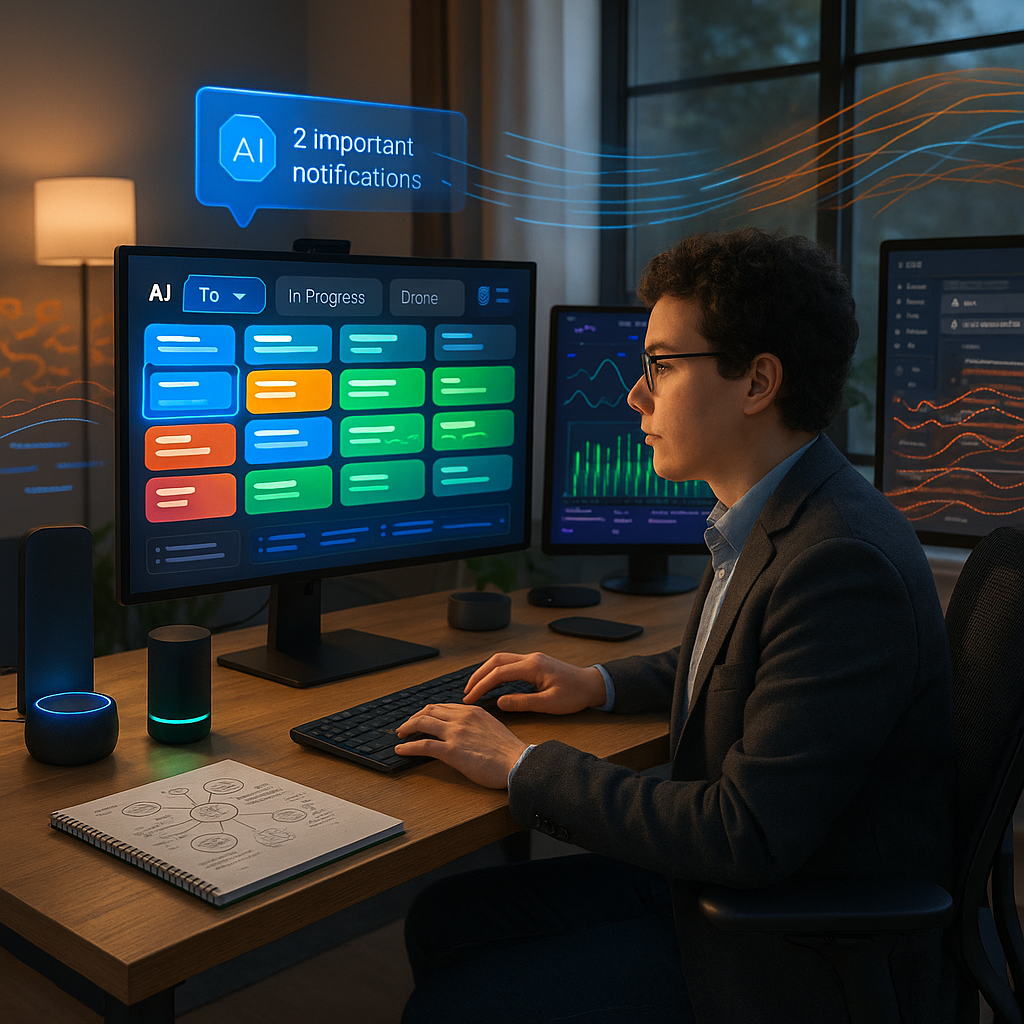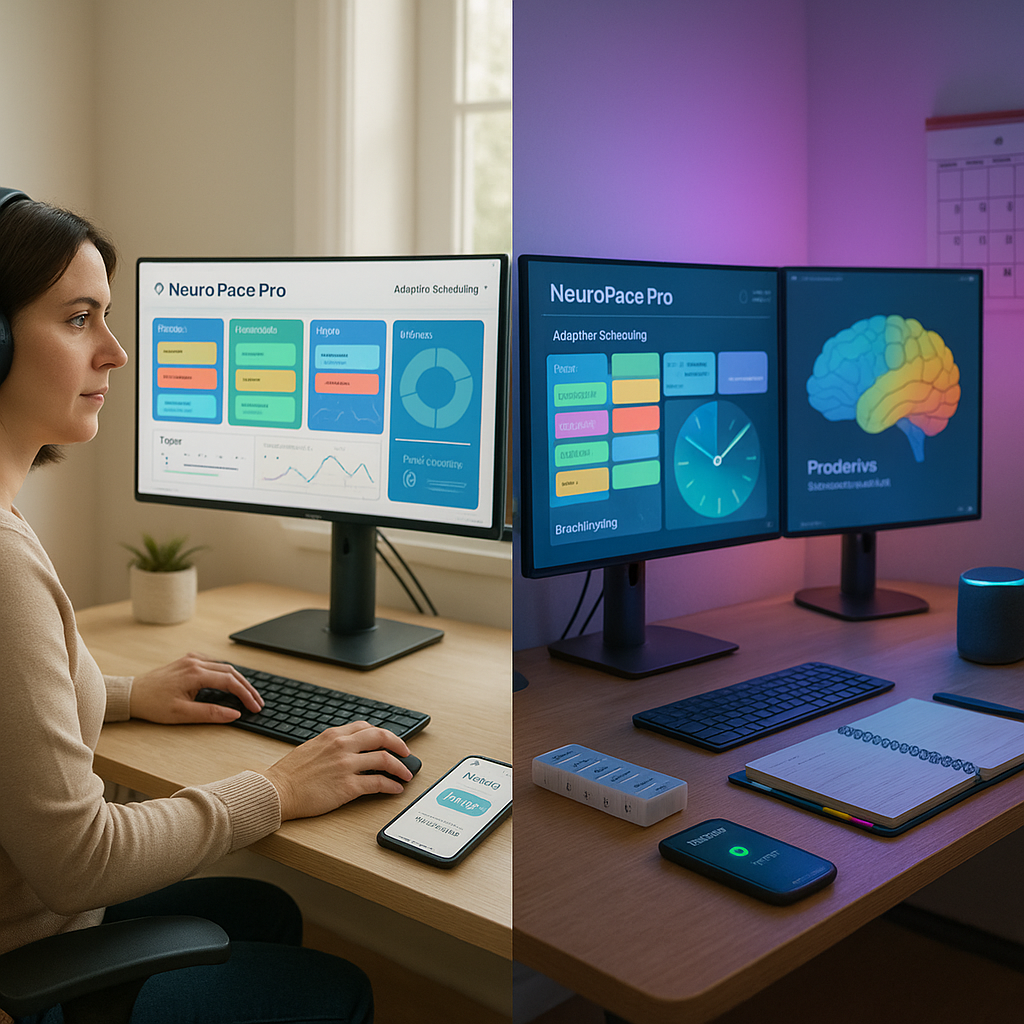Key Takeaways
- AI turns hyperfocus into a business asset: Digital tools channel intense focus toward priority tasks, limiting distractions and maximizing productivity.
- Automation reduces burnout: Routine tasks move to autopilot, freeing up mental energy for creativity and important decisions.
- Customized workflows empower neurodivergent strengths: Entrepreneurs tailor AI assistants to their unique thought patterns, turning organizational challenges into sustainable routines.
- Real-world success from lived experience: ADHDink’s founder rebuilt work and life after the pandemic by embracing, not fighting, neurodivergence, with AI as a catalyst.
- Growing demand for scalable, ADHD-friendly systems: Solopreneurs and teams are increasingly seeking consulting to adapt technology for sustainable growth and mental well-being.
Introduction
AI-powered tools are transforming how neurodivergent entrepreneurs, especially those with ADHD or on the autism spectrum, operate and build businesses. By automating repetitive tasks and tailoring digital assistants to individualized needs, founders are boosting productivity, reducing overwhelm, and establishing systems for growth on their own terms.
Neurodivergent Entrepreneurs Find Success with AI-Enhanced Workflows
AI-powered productivity tools are changing how entrepreneurs with ADHD and autism manage their businesses. These systems adapt to unique thinking patterns and automate routine tasks that often disrupt neurodivergent workflows, turning traditional executive function challenges into operational strengths.
According to recent data from workflow management platform NeuroFlow, neurodivergent business owners using AI assistants report 40% higher task completion rates and experience 35% less work-related stress compared to those using traditional productivity methods.
Maya Chen, founder of ADHDink, a neurodivergent-focused digital agency, stated that AI tools do not attempt to “fix” neurodivergent brains. Instead, they amplify natural strengths while providing support where needed.
Key AI Tools Reshaping Business Operations
Task Management and Executive Function Support
AI-powered project management platforms offer dynamic task prioritization aligned with shifting attention patterns and energy levels. These systems analyze individual work habits to suggest optimal schedules for deep work sessions.
Platforms such as Todoist’s AI features and Motion‘s adaptive scheduling assist entrepreneurs in maintaining momentum by automatically reprioritizing tasks when plans change, reducing the executive function burden of constant adjustment.
Communication and Content Creation
Natural language processing tools are particularly valuable for neurodivergent entrepreneurs who may face challenges with written communication or context switching. AI writing assistants help maintain consistent business messaging while preserving authentic voice.
Dr. Sarah Martinez, a neurodiversity workplace consultant, explained that such tools function as real-time communication coaches, clarifying messaging without suppressing unique perspectives.
Administrative Automation
Repetitive administrative tasks often deplete creative energy for neurodivergent entrepreneurs. AI automation now handles everything from email management to financial categorization, freeing up cognitive resources for innovation.
Small business owner James Wilson reported a 60% reduction in administrative time after adopting AI tools. He noted that automation managed tasks which previously caused task-switching fatigue, allowing him to focus on strategic growth.
Leveraging Neurodivergent Strengths
Pattern Recognition and Problem-Solving
AI analytics tools complement the strong pattern recognition abilities often found in neurodivergent thinking. These systems assist entrepreneurs in detecting market trends and operational inefficiencies that others may overlook.
Business intelligence platforms increasingly include features designed to support divergent thinking and complex problem-solving, making data analysis more engaging and less overwhelming.
Hyperfocus and Creative Flow
Modern AI tools enhance the benefits of hyperfocus periods by managing disruptions and tracking optimal performance patterns. Smart notification systems adjust in real time based on focus indicators and task complexity.
Calendar tools with AI integration now automatically schedule breaks and transitions, helping entrepreneurs maintain steady energy throughout the workday.
Implementation Strategies for Sustainable Growth
Customization and Integration
Effective implementation begins with an understanding of personal working patterns and challenges. AI systems can be trained on individual productivity data, creating workflows that support natural strengths rather than enforcing neurotypical models.
Tech entrepreneur Alex Rivera shared that the turning point was finding tools that adapted to his way of thinking, rather than pushing him into conventional workflows.
Measuring Impact and Adjusting Systems
Consistently assessing tool effectiveness helps sustain benefits. AI analytics track productivity trends and suggest workflow refinements, creating an ongoing feedback loop for improvement.
Performance measurement should prioritize meaningful outcomes over traditional productivity metrics. AI tools can help identify and track personalized indicators of success.
Conclusion
AI-powered tools are reshaping productivity for neurodivergent entrepreneurs by transforming unique thinking patterns into business strengths and relieving everyday operational challenges. As these systems become even more adaptive and personalized, workplaces are gradually moving toward greater inclusivity and sustainable growth. What to watch: future software updates that further customize AI workflows for individual neurodivergent needs.





Leave a Reply